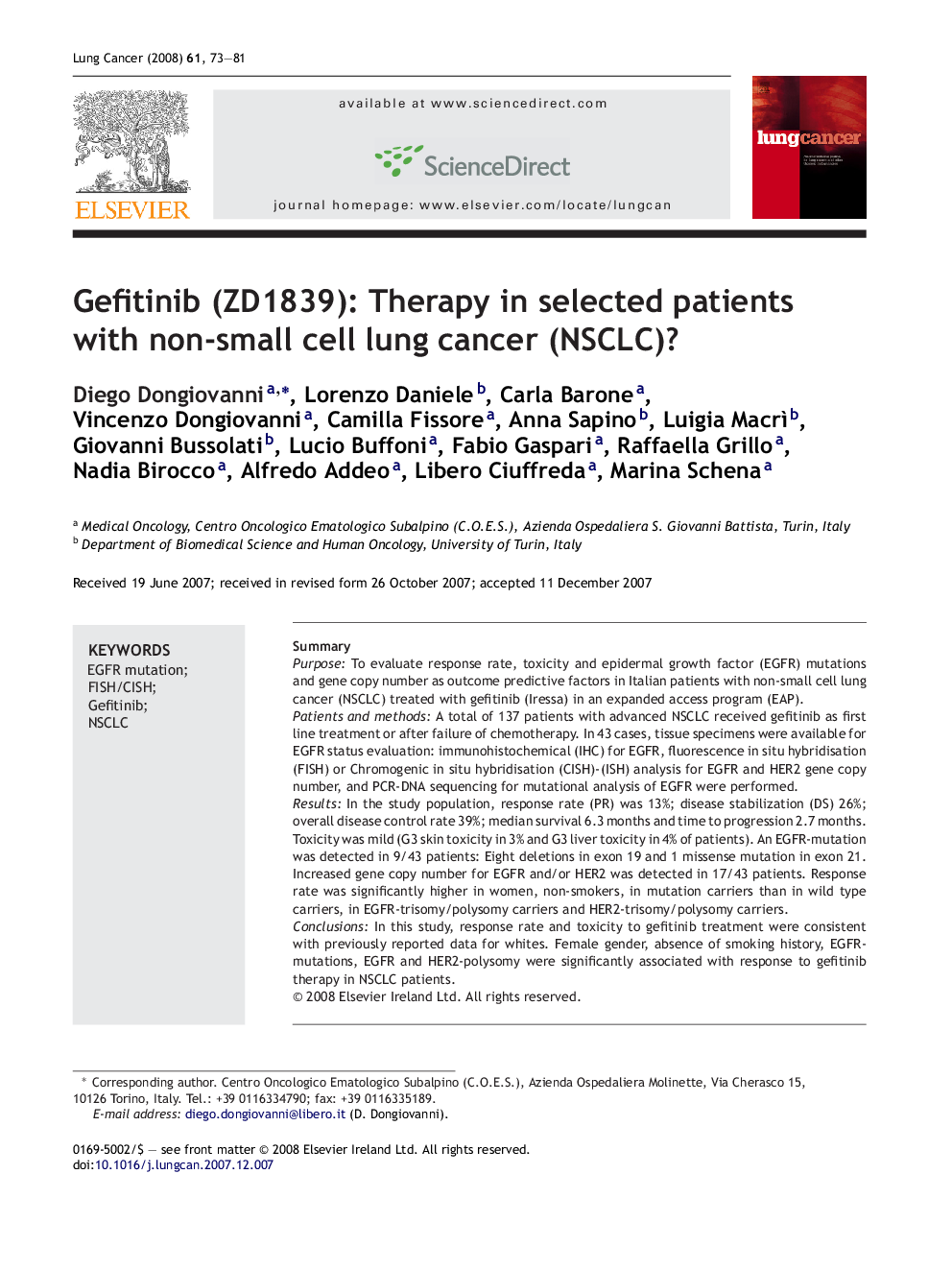| Article ID | Journal | Published Year | Pages | File Type |
|---|---|---|---|---|
| 2143488 | Lung Cancer | 2008 | 9 Pages |
SummaryPurposeTo evaluate response rate, toxicity and epidermal growth factor (EGFR) mutations and gene copy number as outcome predictive factors in Italian patients with non-small cell lung cancer (NSCLC) treated with gefitinib (Iressa) in an expanded access program (EAP).Patients and methodsA total of 137 patients with advanced NSCLC received gefitinib as first line treatment or after failure of chemotherapy. In 43 cases, tissue specimens were available for EGFR status evaluation: immunohistochemical (IHC) for EGFR, fluorescence in situ hybridisation (FISH) or Chromogenic in situ hybridisation (CISH)-(ISH) analysis for EGFR and HER2 gene copy number, and PCR-DNA sequencing for mutational analysis of EGFR were performed.ResultsIn the study population, response rate (PR) was 13%; disease stabilization (DS) 26%; overall disease control rate 39%; median survival 6.3 months and time to progression 2.7 months. Toxicity was mild (G3 skin toxicity in 3% and G3 liver toxicity in 4% of patients). An EGFR-mutation was detected in 9/43 patients: Eight deletions in exon 19 and 1 missense mutation in exon 21. Increased gene copy number for EGFR and/or HER2 was detected in 17/43 patients. Response rate was significantly higher in women, non-smokers, in mutation carriers than in wild type carriers, in EGFR-trisomy/polysomy carriers and HER2-trisomy/polysomy carriers.ConclusionsIn this study, response rate and toxicity to gefitinib treatment were consistent with previously reported data for whites. Female gender, absence of smoking history, EGFR-mutations, EGFR and HER2-polysomy were significantly associated with response to gefitinib therapy in NSCLC patients.
